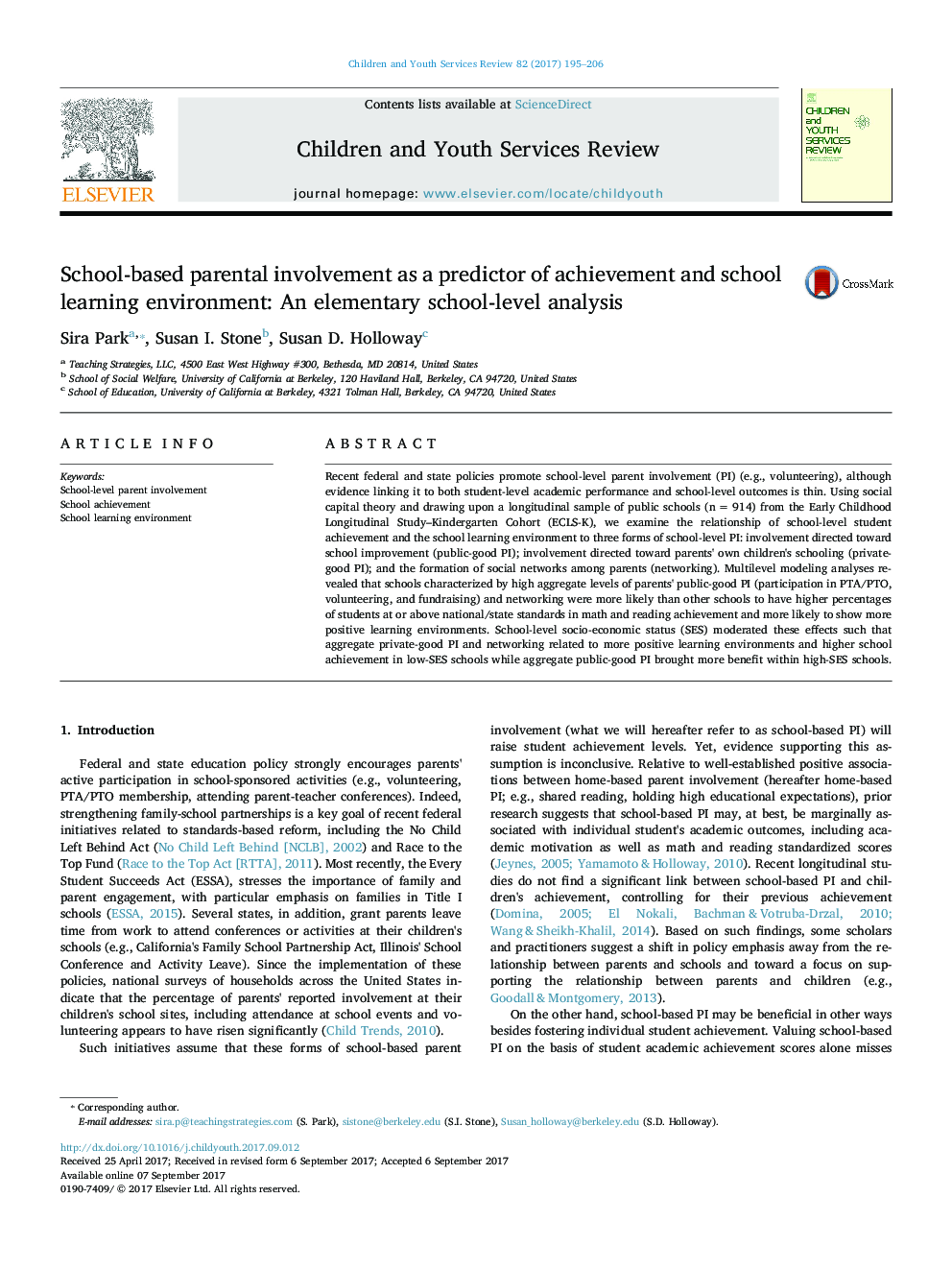| کد مقاله | کد نشریه | سال انتشار | مقاله انگلیسی | نسخه تمام متن |
|---|---|---|---|---|
| 4936191 | 1434427 | 2017 | 12 صفحه PDF | دانلود رایگان |
- Prior research has not fully explored school-level parental involvement (PI) or its relationship to school-level outcomes.
- Schools characterized by high aggregate levels of public-good PI and parent networking have higher percentages of students at or above national/state standards in math and reading achievement.
- Schools characterized by high aggregate levels of public-good PI, private-good PI, and parent networking possess more positive learning environments.
- School-level socio-economic status (SES) moderated school-level PI effects. High aggregate levels of public-good PI conferred more benefit within high-SES schools.
- High aggregate levels of private-good PI and networking were found to increase the capacity of low-SES schools to create a more positive school learning environment and higher achievement.
Recent federal and state policies promote school-level parent involvement (PI) (e.g., volunteering), although evidence linking it to both student-level academic performance and school-level outcomes is thin. Using social capital theory and drawing upon a longitudinal sample of public schools (n = 914) from the Early Childhood Longitudinal Study-Kindergarten Cohort (ECLS-K), we examine the relationship of school-level student achievement and the school learning environment to three forms of school-level PI: involvement directed toward school improvement (public-good PI); involvement directed toward parents' own children's schooling (private-good PI); and the formation of social networks among parents (networking). Multilevel modeling analyses revealed that schools characterized by high aggregate levels of parents' public-good PI (participation in PTA/PTO, volunteering, and fundraising) and networking were more likely than other schools to have higher percentages of students at or above national/state standards in math and reading achievement and more likely to show more positive learning environments. School-level socio-economic status (SES) moderated these effects such that aggregate private-good PI and networking related to more positive learning environments and higher school achievement in low-SES schools while aggregate public-good PI brought more benefit within high-SES schools.
Journal: Children and Youth Services Review - Volume 82, November 2017, Pages 195-206
